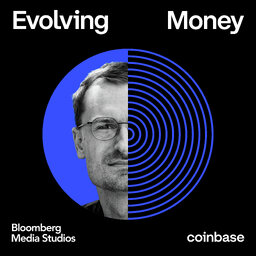McAfee antivirus software was ubiquitous in the 1990s, and its creator John McAfee helped define the modern cybersecurity industry. McAfee was an archetype of the Silicon Valley founder — bombastic, enigmatic and brilliant. But his life would take a dark turn. Reporter Jamie Tarabay investigated the early days of his career and found that the warning signs were there from the beginning.
In 1 playlist(s)
Foundering
Foundering is an award-winning, serialized podcast from the journalists at Bloomberg Technology. Eac…Social links
Follow podcast
Recent clips

Evolving Money: Rebuilding the Creator Economy (Sponsored Content)
18:29

OpenAI Part 5: Beware the Ides of November
47:50

OpenAI Part 4: Heaven and Hell, Part 2
21:59
 Foundering
Foundering